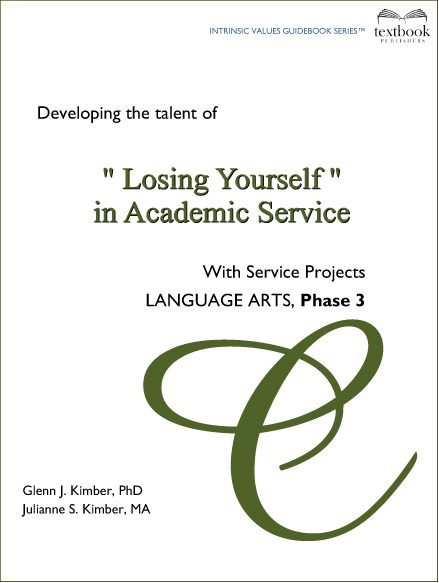Instructor(s)
- Tue, Wed, Thur
- 11 am
Language Arts – The Art of Communication
During this class, students soon discover that knowledge is only theirs as they learn to give it away. They give it away by teaching it, writing it, displaying it, recording it, acting it, drawing it, singing it, composing a song about it, etc. The important skills of reading and writing, spelling and punctuation, are developed as students discover the many ways they can share with others and perfect what they have learned. The more they share their knowledge, the more it is theirs.
As students progress through their Language Arts studies, Dr. Kimber will show them how to perform weekly creative academic service projects. After completing their manual, students will have developed the talent of “learning how to lose oneself in academic service.”
$60.00
If you register before school begins, there is a free trial included, where you can access previously recorded classes.
Students can choose which of the 3 Language Arts manuals they would like to study. It usually takes one school year to go through one manual.
There are three learning exercises for each principle, and students can work as fast or slow as they wish. First, students memorize a principle. They then refer to the scriptures of choice to see how that principle is presented or used in scripture. Finally, the students practice the principle by using it in an academic service project.
CONTENTS OF VOLUME 1
Creating a Word
Alphabetical order
Syllables
Singular and plural
Capitalization and abbreviation
Contractions
Prefixes and Suffixes
Words of Worship
Creating a Sentence
Punctuation marks
Nouns and their articles
Verbs and verb phrases
Adjectives
Conjunctions
Diagramming sentences for clarity
Creating a Paragraph
Opening and closing sentences
Details and descriptions in the topic
Proof-reading skills and evaluation
Reading aloud to a group
mportant paragraphs to memorize
How to recite with meaning and feeling
CONTENTS OF VOLUME 2
Creating a Word
Interjection (parts of speech)
Synonyms and Homonyms
Antonyms and Acronyms
Capitalization
Latin Roots
Greek Roots
Intermediate Spelling
Patterns
Common sight-words
List of 3,000 commonly used words to study
Derivatives
Plural Derivatives
Common prefixes and suffixes
Creating a Sentence
Pronouns
Verbs—participles, transitive, intransitive
Verbs that are homonyms
Adverbs
Adjectives – their 3 values
Propositions
Conjunctions
Diagramming practice
Principles of Punctuation
Period
Comma
Semi-colon
Colon
Dash
Parentheses
Brackets
Apostrophe
Quotation Marks
CONTENTS OF VOLUME 3
Reading and Writing Poetry
Creating Short Stories
Creating Outlines and Taking Notes
Creating Research Reports




